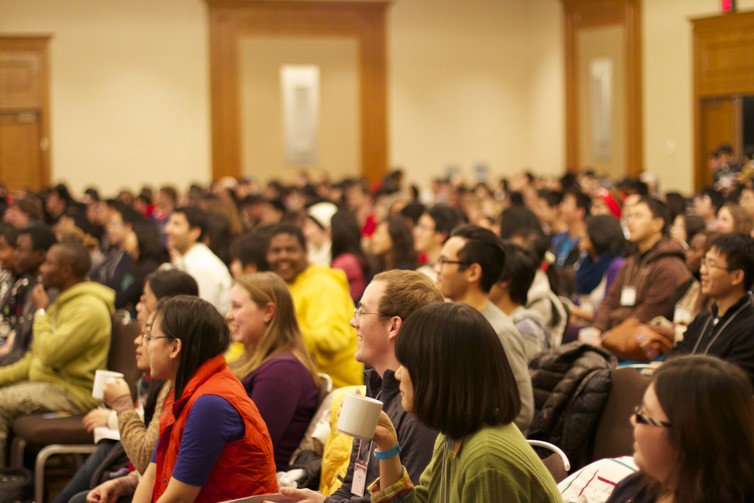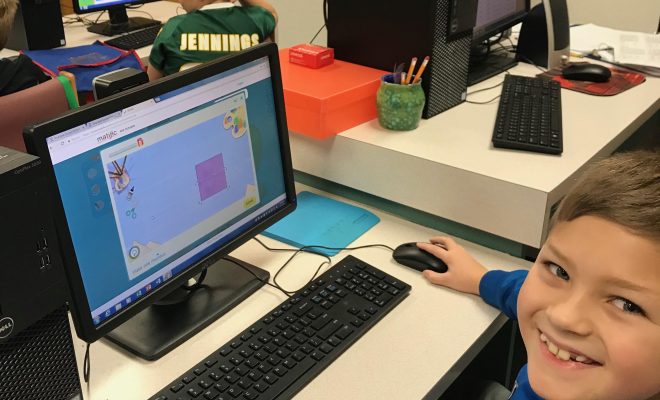Behind Singapore’s PISA rankings success – and why other countries may not want to join the race

This article was written by Amanda Wise
Singapore has topped the global Programme for International Student Assessment (PISA) rankings in maths, science and reading, while countries including Australia, France and the UK sit in the bottom batch of OECD countries for achievement in these areas.
So what is Singapore doing right, and do other countries want to emulate it?
Clearly there are things to learn. Singapore has invested heavily in its education system. Its teachers are the best and brightest, and it has developed highly successful pedagogic approaches to science, maths, engineering and technology (STEM) teaching, such as the “Maths Mastery” approach.
Culturally, Singaporeans have a strong commitment to educational achievement and there is a national focus on educational excellence.
Success in PISA rankings and other global league tables are an important part of the Singapore “brand”. Singaporean academic Christopher Gee calls this the “educational arms race”. Highly competitive schooling is the norm.
Role of private tuition
Public discussion in Australia around why we are not doing as well as the Singaporeans is largely focused on what goes on in that country’s schools.
Yet there is one thing missing from the reporting on Singapore’s success: the role of private tuition (private tutors and coaching colleges) and the part it plays in the overall success of students in the tiny city-state. Here are some startling figures:
- 60% of high school, and 80% of primary school age students receive private tuition.
- 40% of pre-schoolers receive private tuition.
- Pre-schoolers, on average, attend two hours private tuition per week, while
primary school aged children are attending, on average, at least three hours per week.
That’s right. Eight out of ten primary school aged students in Singapore receive private tuition, either by way of private tuition or coaching colleges.
In 1992, that figure was around 30% for high school and 40% for primary school. The hours spent in tuition increase in late primary school, and middle-class children attend more hours than less well-off families.
The number of private coaching colleges has also grown exponentially in the last decade, with 850 registered centres in 2015, up from 700 in 2012.
Impact on family income
According to Singapore’s Household Expenditure Survey, private tuition in Singapore is a SGD$1.1 billion dollar industry (for a nation with a population of about 5.6 million) almost double the amount households spent in 2005 ($650 million). How does that look at the household level?
34% of those with children currently in tuition spend between $500 (AU$471) and $1,000 (AU$943) per month per child, while 16% spend up to $2,000.
Considering the bottom 5th quintile of households earn about $2,000 (AU$1,886) per month – the next quintile around $5,000 (AU$4,716) – this is a very large chunk of the family budget.
Imagine a family with two or three children and we get a sense of the potential socioeconomic inequalities at work when educational success depends on private tuition.
Surveys show that only 20% of those in the lowest two income brackets (a monthly income of less than $4,000) have a child in tuition.

One of the major tuition centre chains with outlets in shopping malls across Singapore. Author provided
Tuition centres
Tuition centres and coaching colleges range from more affordable neighbourhood and community based centres to large national “branded” coaching colleges with outlets in major shopping malls across the island.
The quality of tuition received is very much linked to how much one can afford to pay. It is big business.
The marketing strategies of the coaching colleges are very good at inducing anxiety in parents about fear of failure unless they are willing to pay to help their children get ahead.
Many parents complain that the schools “teach beyond the text”. That is, there is a perception that some teachers assume all the kids in the class are receiving tuition and thus teach above the curriculum level. Imagine the impact on those few children who are not receiving extra help.
Why does this start in pre-school and primary?
Singapore’s Primary School Leaving Exam (PSLE) is a seriously high-stakes exam that determines not just what high school a child will enter, but whether a child is streamed into a school that will fast track them to university.
Singaporeans do not have an automatic right to enrol their children into the “local” high school.
All high schools are selective and the best schools have the pick of the PSLE crop.
Primary students are streamed into four types of high school : the top ones feed students direct to university via the A-Level exams, while the bottom “technical” and “normal stream” schools feed into the institutes of technical education and polytechnics, with a much more complex pathway towards university.

Advertising poster for one of Singapore’s leading chain of coaching colleges ‘Mindchamps’. Author provided
The PSLE exam induces in 11 and 12 year olds the same level of anxiety seen in teenagers sitting the Higher School Certificate (HSC) or Victorian Certificate of Education (VCE) in Australia.
Many middle-class parents believe the “race” starts early.
Parents are increasingly expected to have their pre-school aged child reading and writing, and with basic maths skills before they even enter school – and this is frequently achieved through private pre-schools and “enrichment” tuition.
While there is much to genuinely admire about Singapore’s educational success story, there is a question about the role of private enterprise (private coaching colleges) in shaping childhoods and stoking parental anxieties.
A potential concern when private tuition reaches saturation point is that schools come to assume the level of the “coached child” as the baseline for classroom teaching.
Many Singaporean parents I have spoken to bemoan the hyper-competitive environment that forces their children into hours of extra tuition, impacting on family time and relationships and reducing opportunities for childhood free play, developing friendships and simply getting some decent rest. Many feel they have no choice.
Singaporeans have a term for this pathology: “Kiasu”, which means “fear of falling behind or losing out”. Policymakers, and indeed reporting, needs to be cognisant of exactly what produces these outlying educational success stories.
This is not to argue Singapore’s success is entirely due to out of school coaching. Singaporean schooling excels on many fronts. However given the levels of private tuition, it needs to be seen as a key part of the mix.
![]()
Amanda Wise, Associate professor, Macquarie University
This article was originally published on The Conversation. Read the original article.





